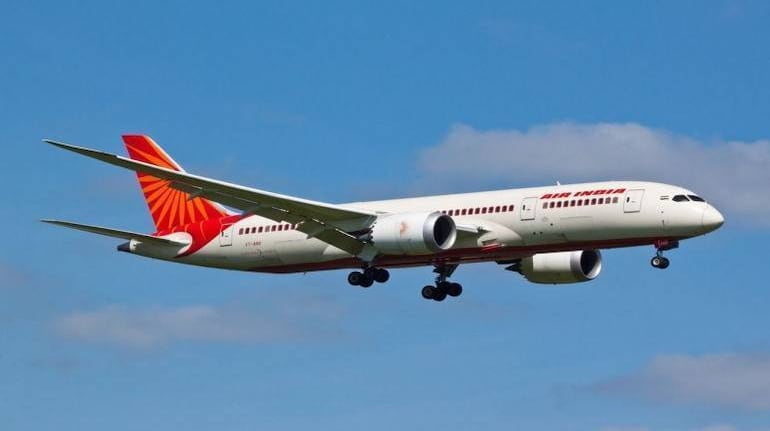



The government will shortly begin work on finalising the broad contours of Air India’s (AI) privatisation plan that will likely involve valuing the non-core assets including prime real estate in Delhi and Mumbai separately from the national carrier’s main aeronautical operations.
A three-year old note “Guidelines for Monetisation of Real Estate Assets” will likely serve as the guiding framework for the Group of Ministers (GoM) headed by Finance Minister Arun Jaitley tasked with working out the roadmap to sell off India’s debt-laden national airline.
Air India’s properties that could be sold off include: freehold land and residential flats at Palavanthangal Village and IA Staff Housing Colony spread across 19.13 acres in Chennai, another free hold land plot of land in Annasalai in Chennai, Airlines House (the headquarters of erstwhile Indian Airlines) located in Gurudwara Rakabganj Road, Delhi, another 16,188 sq mt of premises at Baba Kharak Singh Marg, Delhi, staff quarters in spread across 30 acres in south Delhi’s plush Vasant Vihar, eight flats of 1900 sq feet each in New Delhi’s Asiad Village, about 20 acres of free hold land and buildings in Central Training Establishment, Hyderabad, the iconic Air India building in Mumbai’s Nariman Point, building at old airport, Kalina, Santacruz, Mumbai, office building, NITC, Santa Cruz, Mumbai, land at CIDCO Plot, Nerul in Mumbai and property in DLF, Qutab Enclave, Phase-III, Gurgaon, Haryana.
It also has properties in Nairobi, Hong Kong and Mauritius among others.
While formulating Air India's Financial Restructuring Plan in 2012, consulting and audit firm Deloitte had also recommended proper monetisation of its immovable assets.
Later, when AI has finalised its Turnaround Plan (TAP) and Financial Restructuring Plan (FRP), monetisation of its realty assets formed an important ingredient. The former UPA government, which had approved Rs 30,000 crore TAP for Air India, it had also approved a real estate monetisation plan to the tune of Rs.5000 crore over the next 10 years period with the annual target of Rs.500 crore from 2013 onwards.
The finance minister headed GoM, which has Nitin Gadkari, Suresh Prabhu and Piyush Goyal as members along with aviation minister Ashok Gajapathy Raju, will also study and suggest ways to treat the unsustainable debt of Air India; hiving off certain assets to a shell company and demerger and strategic disinvestment of the airline’s three profit-making subsidiaries.
Also read: IndiGo expresses interest in buying a stake in debt-laden Air India
Air India Transport Services (AITS), Hotel Corporation of India, Air India Charters, Air India Engineering Services (AIES) and Airlines Allied Services are the five subsidiaries of Air India.
The airline, surviving on a-Rs 30,231-crore government bailout package, has accumulated losses of around Rs 52,000 crore and as much debt. The package, approved by the previous government in 2012, called for staggered equity infusion over nine years.
It has so far received Rs 23,993 crore under the package.
The Jaitley-panel will decide on the method of valuation and also on the politically contentious question of how much residual stake should government retain, on the lines of Hindustan Zinc and Balco which allows it to have board positions and voting rights.
Also read:Cabinet gives OK to strategic sale of Air India, panel to study various options
A 2007 estimate pegged the airline's gross value, including aircraft and other assets at Rs 40,000 crore. This assessment, however, did not include the valuation of the subsidiaries.
Air India, over the years, has also acquired priceless artefacts from all over the world, which has immense value. The Jaitley-panel will also decide on short listing of artefacts that can be monetized, appointment of global art houses to value these artefacts and eventually sell these auction.
The government will likely press from a substantial valuation for the premium slots that airline has across major international airports. It has eight pair of slots at London Heathrow and a number of good slots across European airports including Frankfurt, Milan, Rome, Vienna, Stockholm, besides many in the US.
Oman Air recently bought a pair of slot in London Heathrow for USD75 million, which implies Air India’s slots would be value at more than Rs 4,000 crore.
The tricky question, however, will be to deal with the debt. Air India's current total debt stands at about Rs 52,000. About half of this—Rs 25,000 crore— is for funding aircraft acquisition, while the remaining is mainly unsecured working capital debt.
Discover the latest Business News, Sensex, and Nifty updates. Obtain Personal Finance insights, tax queries, and expert opinions on Moneycontrol or download the Moneycontrol App to stay updated!